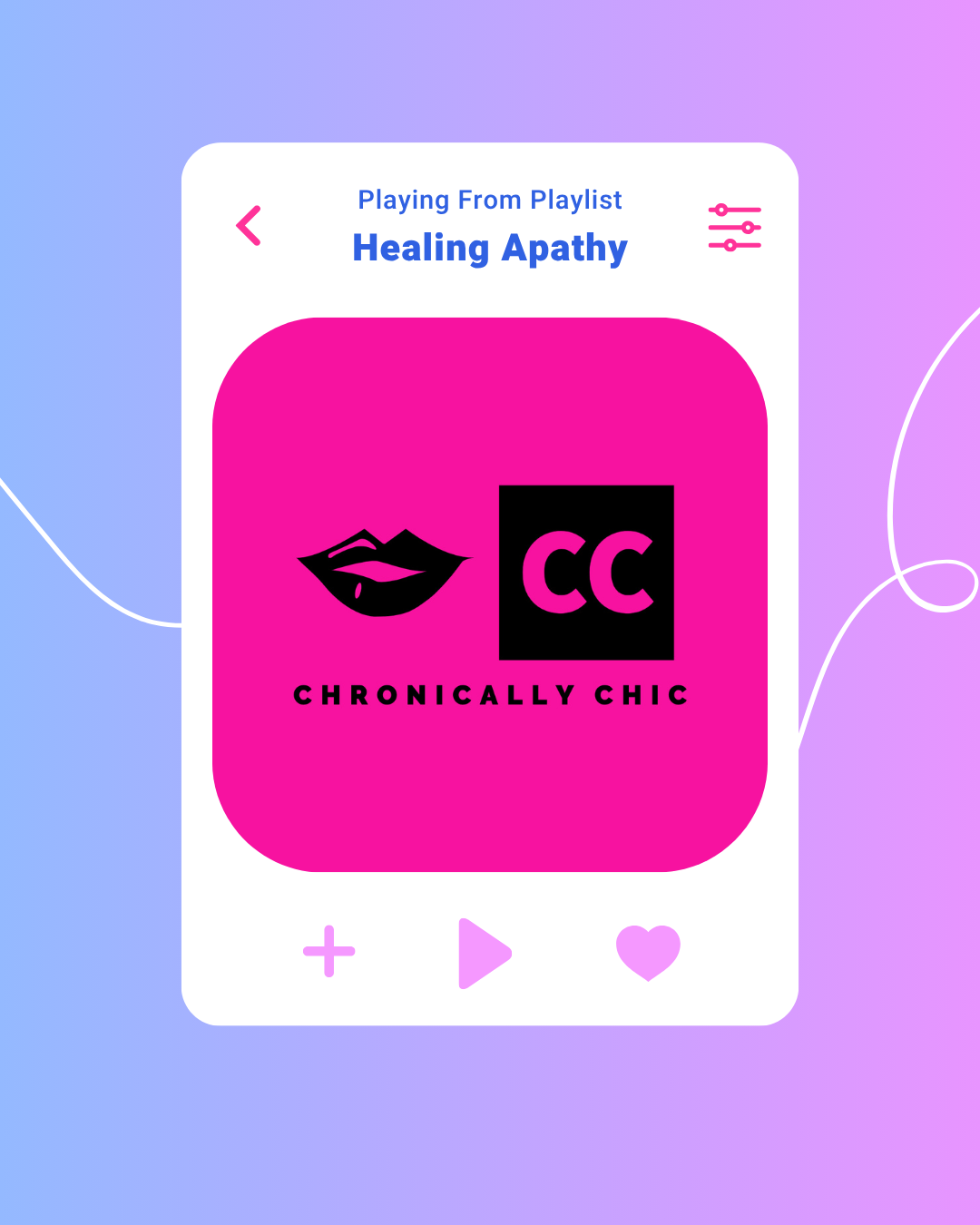Acid Reflux (GERD): No Longer Too Hot to Handle
Hi friends!
You’re at a dinner party, wine in hand, when suddenly, bam! That familiar burn sneaks up your chest. GERD just crashed the party, and it’s not here for a good time.
PS: Before you scroll, sign up for my newsletter!
Pain Points of Heartburn Sufferers
The fear of not knowing which foods will trigger heartburn can be a real pain. Then there's the issue of disrupted sleep, heartburn often hits at night, making it hard to get a good night's rest.
On top of that, there's the guilt and self-blame that can come after indulging in a favorite meal, only to be met with pain and discomfort. And with so many treatment options out there, it's easy to feel overwhelmed and confused.
The Causes and Triggers of Heartburn
We all have our triggers, some people can't resist spicy food (me), while others find themselves clutching their chests after a particularly indulgent pizza night. Here are some common culprits:
Spicy Foods: You might want to reconsider your choices if you love a good curry or spicy salsa. These can send your stomach into overdrive, leading to that burning sensation.
Fried and Fatty Foods: As much as we adore comfort food, fried chicken and greasy burgers can weaken the LES and provoke heartburn.
Chocolate: Yes, the sweet temptation can be a double-edged sword. It can relax the LES and lead to those fiery feelings.
Citrus Fruits: Think lemon and orange juices that can irritate the esophagus.
Tomato-Based Products: Tomato sauce, marinara, and ketchup might taste divine, but they often cause heartburn, especially when consumed in large quantities. Who can resist a good pasta?
Caffeine and Alcohol: Sorry, coffee lovers and wine enthusiasts! Both of these can relax the LES, leading to heartburn. It's about finding substitutes that work, like herbal teas or non-alcoholic drinks. It can feel like a social death sentence when everyone else is enjoying their drinks, and you have to sip on water or ginger ale.
Medications: While medications are often necessary, some, like nonsteroidal anti-inflammatory drugs (NSAIDs) and certain antibiotics, can aggravate heartburn symptoms. A little heads up: It's always worth checking if your meds might be contributing to the issue.
The Proton Pump Inhibitor Predicament
Proton pump inhibitors (PPIs), commonly prescribed for conditions like GERD, reduce stomach acid. However, recent studies have raised alarming concerns about their long-term use.
Research has linked long-term PPI use with an increased risk of gastric cancer. A large study published in 2022 examined over 1.1 million people prescribed PPIs and found that they had a 1.45-fold higher risk of gastric cancer than those taking histamine H2 blockers, an alternative class of acid reducers. The risk was especially concerning for those on high doses of PPIs for extended periods, for example, taking high doses had a 2.03-fold higher risk than those on lower doses.
A study based on the Korean health registry echoed concerns. While PPIs manage acid-related disorders, their long-term use, particularly at high doses, should be approached with caution. Experts now recommend prescribing PPIs at the lowest effective dose for the shortest duration necessary to minimize risks. If you're on PPIs, consult your doctor to discuss the risks and benefits based on your needs. Medicated relief might come with its own set of risks.
Lifestyle Changes to Alleviate Heartburn
Here are some strategies that have worked wonders for me and could do the same for you:
Eat Smaller Meals: Large meals can put pressure on your LES, so opt for smaller, more frequent meals throughout the day.
Stay Upright After Eating: Lying down can encourage acid to travel up your esophagus. Instead, try to remain upright for at least two to three hours after eating.
Identify Triggers: Keep a food diary to track what you eat and when you experience heartburn.
Chew Your Food Thoroughly: The more you chew, the easier it is for your stomach to digest food, which can reduce the risk of heartburn.
Wear Loose Clothing: Tight clothing can put pressure on your abdomen and increase the likelihood of acid reflux. Opt for outfits that allow some breathing room!
Manage Stress: Consider mindfulness practices, meditation, or simply indulging in a hobby you love. Whether painting, writing, or dancing in your living room, stress-relief activities can work wonders for your overall well-being.
Stay Hydrated: Drinking plenty of water throughout the day can help digestion.
Limit Carbonated Drinks: While those fizzy beverages may seem refreshing, they can create pressure in your stomach and cause acid to escape into the esophagus. Opt for still drinks whenever possible to reduce the risk of heartburn.
Try these changes for a week and tell me what’s working or what’s not in the comments. Or better yet, snap a pic of your heartburn-friendly meal and tag me on Instagram!
Natural Remedies to Consider
In addition to these changes, some natural remedies might help alleviate heartburn symptoms:
Ginger: Whether in tea or as a spice in your meals, it may help settle your stomach. Just a few slices of ginger root in boiling water can make a soothing tea that might help reduce inflammation and irritation in your digestive system.
Chamomile Tea: Drinking chamomile tea before bed might help soothe your digestive system and promote better sleep.
Apple Cider Vinegar: Though this one can be controversial, this remedy has gained popularity for its potential digestive benefits. Some people find that mixing a tablespoon of apple cider vinegar with water can help balance stomach acidity. However, be careful, this remedy doesn't work for everyone, and some may find it aggravates their symptoms. It's a good idea to start small and see how your body reacts.
Aloe Vera Juice: Known for its soothing properties, aloe vera can help reduce inflammation in the stomach and esophagus. Drinking a small amount before meals may help soothe your digestive tract. Just choose a product specifically labeled for internal use, as some aloe vera juices can be laxative.
Slippery Elm: This herbal remedy has been used for centuries to soothe digestive discomfort. It contains mucilage, which coats and soothes the digestive tract.
Licorice Root: This herb has been known to help increase the esophagus's mucosal lining, protecting stomach acid. Look for deglycyrrhizinated licorice (DGL) to avoid the potential side effects of excessive glycyrrhizin. DGL can be found in chewable tablets that you can take before meals.
Probiotics: Consider adding fermented foods like yogurt or kefir to your meals. If you're not into dairy, look for non-dairy probiotic options like sauerkraut or kimchi.
When to See a Doctor
While occasional heartburn can be managed, persistent or severe symptoms warrant medical attention. Here are some signs that it might be time to consult a professional:
Frequent Symptoms: If you're experiencing GERD and feel burning more than twice a week, it might be a sign of gastroesophageal reflux disease (GERD).
Difficulty Swallowing: Don't ignore this symptom if you find it hard to swallow food or liquids.
Persistent Nausea or Vomiting: nausea or vomiting alongside heartburn should not be overlooked.
Unintentional Weight Loss: Losing weight without trying can signal underlying health issues.
Chest Pain: While heartburn can cause discomfort, severe chest pain or other symptoms (like shortness of breath or sweating) should be treated as a medical emergency. Always err on the side of caution.
Blood in Stool or Vomit: This is a serious symptom that requires immediate medical attention. If you notice blood, contact your doctor right away.
FAQ’s
1. What is the difference between GERD and regular heartburn?
While occasional heartburn might hit after a heavy or spicy meal, GERD (gastroesophageal reflux disease) is the chronic version that sticks around. If you’re getting heartburn two or more times a week, waking up with a sore throat, or tasting acid in your mouth, you might be dealing with GERD.
2. Can you manage acid reflux naturally without medication?
Absolutely. Many people (myself included) have found relief with simple but powerful shifts like eating smaller meals, not lying down after eating, cutting back on trigger foods, and managing stress. Sometimes, it really is about tuning in to what your body’s screaming at you.
3. What foods naturally soothe acid reflux symptoms?
Think easy, soothing, low-acid: white rice, grass-fed dairy, sourdough bread, ripe bananas, boiled potatoes, and roasted chicken. No tomatoes, citrus, or spicy nonsense allowed.
Pro tip: chew your food like it owes you money. Digestion starts in the mouth.
4. Is alcohol a trigger for acid reflux?
Unfortunately, yes, especially wine, champagne, and anything bubbly or high in sugar. If you want to keep it chic but safe, opt for low-acid cocktails like tequila with honey and soda water or just a classy glass of water with lime (unless citrus is also your nemesis).
5. How long does it take for lifestyle changes to help GERD symptoms?
You could feel better in as little as a week if you’re consistent. Think of it like skincare, results come with time and commitment. You won’t feel better overnight, but your body will thank you by week two or three if you stick with it.
6. Does eating late at night make acid reflux worse?
Yes, and I know this one stings. Your fave 11 PM snacks might be cute for your tastebuds, but not for your esophagus. Aim to eat your last meal 2–3 hours before bed. If you need something before sleep, go bland and small (like a few saltines or some steamed apples).
7. Why do certain foods like tomatoes or chocolate cause heartburn?
They relax the lower esophageal sphincter (LES), which is basically the little valve that keeps stomach acid from creeping up into your throat. When it gets lazy (thanks, chocolate), reflux strikes. It’s not just about spice, it’s chemistry, babe.
8. Can stress really trigger acid reflux?
Yes, your drama isn’t just emotional, it's physiological too. Stress can increase stomach acid and slow digestion, creating a reflux storm. If you’re constantly dealing with stress (who isn’t?), try breathwork, walking after meals, or venting. Yes, seriously.
9. What’s the best sleeping position for acid reflux relief?
Sleep on your left side with your upper body slightly elevated. Gravity is your friend here. Propping yourself up with a wedge pillow or stacking two regular pillows can seriously cut down on nighttime reflux. And yes, it’s worth rearranging your whole bed for.
Finding Your Path to Relief
Managing GERD doesn’t have to mean missing out on life or stressing every meal. Want more tips, easy recipes, and zero-judgment support? Sign up for my newsletter below and get a fresh dose of Chronically Chic goodness delivered right to your inbox every week.
















